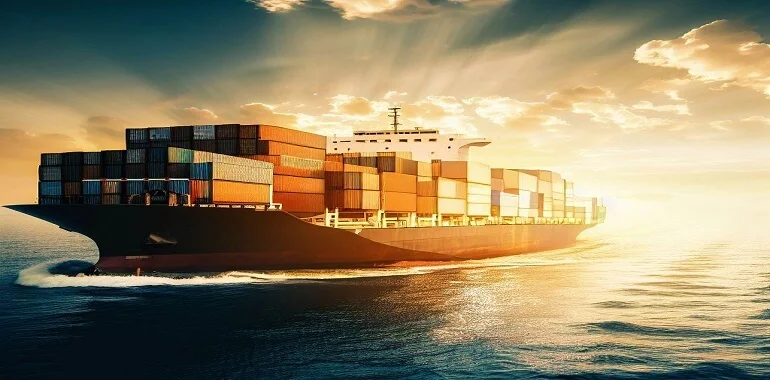What Are the Benefits of Air Freight Shipping?
Home What Are the Benefits of Air Freight Shipping? In today’s fast-paced global economy, businesses need transportation…
Global trade has become the backbone of modern business. Every day, companies import and export thousands of tons of goods across continents. One of the most crucial decisions businesses face in international trade is selecting the right shipping method. While air freight services are fast and convenient, sea freight continues to dominate global trade due to its cost-effectiveness, reliability, and scalability.
In this blog, we’ll explore the top benefits of choosing sea freight services for import and export, the role of freight forwarding services, and why working with a custom clearing agent is essential to ensure smooth shipping operations.
Despite technological advancements and the increasing demand for fast delivery, sea freight remains the most widely used method of transporting goods internationally. According to industry statistics, more than 80% of global trade volume is carried by sea. That figure alone reflects its importance.
So, what makes sea freight a preferred choice? The benefits are numerous, ranging from cost advantages to versatility in handling goods of different sizes and weights.
One of the biggest advantages of sea freight is affordability. When businesses deal with bulk cargo or heavy machinery, shipping by sea is far more economical than air transport.
For instance, sending one container of products by air can cost 4–6 times more than by sea. Companies importing raw materials, electronics, or manufactured goods often choose sea freight to save operational expenses and maintain profit margins.
Example: A manufacturing company importing heavy machinery from China to Pakistan would spend a fraction of the cost using sea freight compared to air freight services.

Sea freight is unmatched when it comes to moving oversized or heavyweight goods. From vehicles and construction equipment to industrial parts, shipping by sea allows businesses to transport items that simply cannot be accommodated by air cargo due to weight or dimension restrictions.
Additionally, sea freight offers options like Full Container Load (FCL) and Less than Container Load (LCL), giving flexibility depending on shipment size.
Sustainability has become an important consideration in global trade. Compared to air freight, sea shipping produces significantly fewer carbon emissions per ton of goods transported. For businesses aiming to reduce their carbon footprint and align with eco-friendly initiatives, sea freight is a greener choice.
Cargo ships are designed to carry a wide variety of goods, including hazardous or fragile materials. With the right packaging and container type, businesses can ensure their products arrive safely. Insurance options are also available to cover potential risks.
Unlike air freight, where space is limited, sea freight allows businesses to use specialized containers for liquids, perishables, or dangerous goods, ensuring compliance with international safety standards.
Ports are the gateways of global trade, connecting nearly every country in the world. Sea freight offers access to regions where air freight is limited or too expensive. This accessibility ensures businesses can reach international markets seamlessly, whether importing textiles, electronics, or raw materials.
Not every business requires an entire container for their goods. With options like LCL (Less than Container Load), companies can share container space and pay only for the portion they use. On the other hand, FCL (Full Container Load) is ideal for large shipments requiring dedicated space.
This flexibility makes sea freight suitable for businesses of all sizes, from small startups to multinational corporations.
While sea freight is slower compared to air freight services, modern shipping lines operate on fixed schedules, making it easier for businesses to plan their supply chains. Advanced tracking systems also provide visibility, allowing importers and exporters to monitor their goods in real time.
International trade laws are constantly evolving. Needing a professional custom clearance agent ensures that your business stays compliant with regulations.
Imagine importing perishable goods where even a one-day delay could lead to losses. A skilled custom clearing agent ensures smooth passage through customs checkpoints.
Choosing sea freight for import and export offers businesses a wealth of benefits—from cost savings and cargo capacity to global reach and environmental sustainability. However, successful international trade requires more than just shipping. Partnering with reliable freight forwarding services and hiring a professional custom clearance agent ensures goods move smoothly across borders without delays or penalties.
Understanding the responsibilities of a custom clearance agent and the importance of compliance in customs procedures is essential for every importer and exporter. Whether you’re shipping bulk goods or specialized cargo, sea freight remains the cornerstone of global logistics.
If you’re planning your next shipment, consider not only the advantages of sea freight but also the support system you’ll need, from freight forwarders to custom clearing agents—to ensure your business thrives in the competitive world of international trade.
Home What Are the Benefits of Air Freight Shipping? In today’s fast-paced global economy, businesses need transportation…
Home Sea Freight Shipping Process: A Step-by-Step Guide Sea freight shipping is one of the most reliable…
Home What is an HS Code in Customs Clearance and Why Does it Matters? International trade depends…